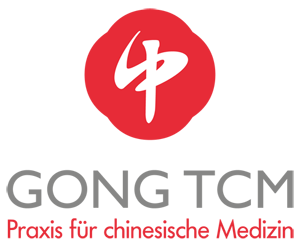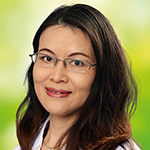Home – Areas of Treatment – Skin Problems
Hair loss
There are numerous causes of hair loss. Hormonal changes, medication, iron deficiency, infections, hair cosmetics, etc. can all be reasons for hair loss. There is still no conventional medical treatment for men (even if it is sometimes promised in advertising). In women, an improvement can be brought about with anti-androgens (hormones). In Chinese medicine, hair is compared to a field of grain. The prerequisites for grain to grow in a field are that the soil is fertile, moist and rich in nutrients. Nothing grows in heat, drought and dryness. From a TCM perspective, hair loss is therefore caused by a Yin deficiency. In TCM, yin refers to the cooling, nourishing, moisturizing aspect of the body. With increasing age, the yin is depleted, causing the yang to predominate with symptoms associated with dryness or heat. Very often stress and overwork cause a Yin deficiency. Poor nutrition, lack of sleep and strains such as emotional stress also weaken our Yin. Acupuncture and treatment with Chinese herbs, which can also be used to perform a head wash, can help to prevent or delay hair loss.
Psoriasis (psoriasis)
Psoriasis is a chronic, usually relapsing skin disease with a genetic predisposition. It is characterized by increased cell regeneration of the epidermis and a cornification disorder. Although the skin changes can be treated with conventional medicine, the predisposition to psoriatic skin reactions cannot. Psoriasis (Bai Bi) is one of the more complex skin diseases, as the disease is divided into nine different syndromes. The most common is blood stasis with heat. Attention must be paid to the color and shape of the skin manifestations, itching, pulse, tongue and triggering/improving factors. The treatment of Chinese medicine consists mainly of formulas that combat inflammation. At the same time, the nutrition and care of the skin should be improved. Acupuncture is a promising option in Chinese medicine to regulate energetic disharmonies. Points on the pathways that are connected to the skin are selected.
Dry skin (sebostasis)
Dry skin is the result of reduced sebum production in the skin. Numerous internal and external factors are possible causes. Dryness is promoted by incorrect bathing/showering/washing habits, saunas and low humidity in heated rooms. Dry skin can lead to symptoms such as itching and a feeling of tightness. Scaling or reticular, superficial, reddish cracks can form in the skin. Dry skin in Chinese medicine indicates a blood or yin deficiency. When accompanied by itching or redness, blood or yin deficiency can be accompanied by heat. In TCM, yin refers to the cooling, nourishing, moisturizing aspect of the body. With increasing age, the yin is depleted, then the yang predominates with symptoms associated with dryness or heat. Very often stress and overwork cause a Yin deficiency. Poor nutrition, lack of sleep and strains such as emotional stress also weaken our Yin. The therapeutic approach is to preserve and build up the blood and yin in the body. This is done by strengthening the spleen, which is involved in blood production, and strengthening the lungs, which control the skin.
Acne vulgaris (acne)
The typical pubertal acne is multifactorial. Due to a genetic predisposition, hormonal changes during puberty lead to hyperfunction of the sebaceous glands with keratinization disorders of the excretory ducts. Bacteria also play a role. Other triggers can be oils, tar products and medicines. In conventional medicine, acne is treated with medication or hormones. According to Chinese medicine, heat accumulates in the body and organs and then rises to the higher regions according to the pathways of the organs, where redness, pimples and pustules appear. According to the affected skin areas, Chinese diagnostics can determine which organs are affected. If, in addition to simple, reddened pimples and papules, pus is also present or if the lesions are thick, deep, cystic or nodular, there is an accumulation of dampness in addition to the internal heat. This usually results from poor nutrition. It is treated with Chinese medicinal therapy, which has a regulating effect and brings the body back to its ideal state. In addition, acupuncture helps to eliminate heat and phlegm and promotes the removal of blockages and stagnation.
Oily skin
Oily skin, also known as “seborrhea”, is caused by an overproduction of sebaceous glands. Seborrhea is a symptom and not a disease in its own right. It occurs in some skin diseases as an essential component (e.g. in acne) or as an accompanying symptom. Oily food and a poor diet can promote oily skin. In Chinese medicine, oily skin is a sign of excessive moisture accumulation in the body. In Chinese medicine, the spleen governs the transformation and transportation of food. If the spleen is weakened, the food can no longer be properly utilized and it turns into dampness. The causes of spleen weakness are usually poor nutrition and incorrect eating habits. It is important to strengthen the spleen with herbs and acupuncture. At the same time, attempts are made to improve eating habits by making small changes.
Shingles
Shingles is caused by the herpes zoster virus. If the zoster viruses are reactivated, they migrate via the nerve tracts to the skin area that is supplied by this nerve and extends from the spine forward in a belt shape to the midline. This is where the name shingles comes from. Shingles can also manifest itself on the face. Patients complain of a general feeling of illness, pain and possibly also fever. The main symptom is small skin blisters on a reddened background accompanied by burning pain in the affected skin area. Shingles is a contagious disease, whereby only the contents of the blisters are infectious. From the point of view of Chinese medicine, the disease factors of dampness and heat play a major role in the treatment of shingles. According to TCM, the formation of blisters and incrustations are often signs of dampness, which should be dried or eliminated. Heat plays a major role in many skin diseases, including shingles. Herbs are used here that cool the disease factor heat and eliminate it from the body, for example via the bowel movements or urine. The infectious component, i.e. the viral infection, is defined and eliminated as toxic in TCM.



